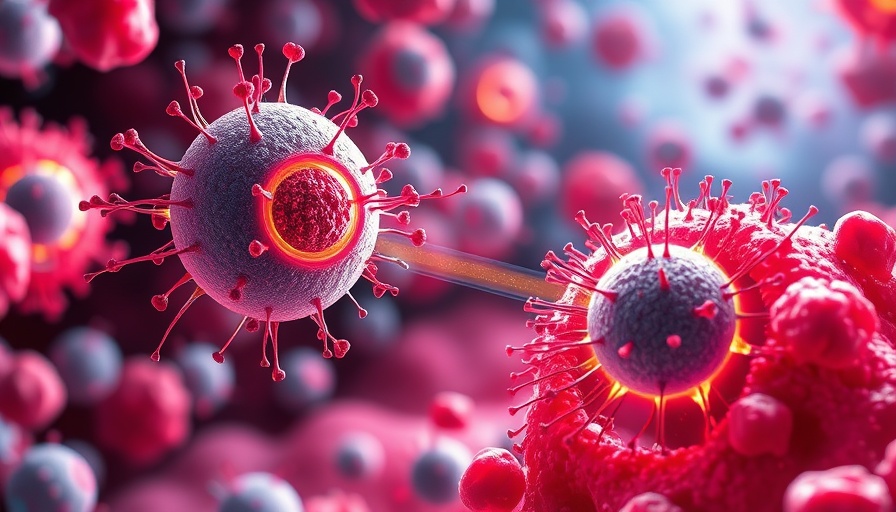
A Novel Approach to Treating Acute Myeloid Leukemia
In recent years, the race to find effective therapies for acute myeloid leukemia (AML) has gained momentum, especially for patients who have relapsed after standard treatments. A groundbreaking study from Osaka University has introduced a promising method that utilizes chimeric antigen receptor (CAR) T cells specifically engineered to target AML cells.
Understanding the Challenges of AML
AML is a challenging type of cancer due to the difficulties in distinguishing between cancerous cells and the normal cells in the body. Traditional treatments, like allogeneic hematopoietic stem cell transplantation (allo-HCT), strive to eliminate cancer cells while preserving healthy cells. However, many patients experience a relapse, prompting researchers to explore new and innovative treatment strategies.
Identifying Specific Targets: The Role of HLA-DRB1
The core of the recent advancements lies in the identification of the HLA-DRB1 molecule, which can be utilized as a specific target for CAR T cell therapy. The research team, led by Shunya Ikeda, aimed to find unique antigens that would allow CAR T cells to distinguish AML cells from normal blood cells. Their exhaustive screening, which examined thousands of monoclonal antibodies, resulted in the identification of the antibody KG2032, which binds specifically to AML cells across over half of the tested patient samples.
Significance of the KG2032 Antibody
KG2032's unique property is that it reacts to a subset of the HLA-DRB1 protein, which is structured in a specific way. This means that patients who carry a certain amino acid in their HLA-DRB1 but their donor does not can benefit from this therapy. The distinction highlights a targeted approach, enhancing the efficacy of treatment while reducing toxicity risks that plague many cancer therapies.
Preclinical Success: Testing & Results
The preclinical trials demonstrated that KG2032 CAR T cells exhibited impressive anti-AML effects in mouse models without any overt signs of toxicity. These results are significant because they suggest that this targeted therapy can effectively attack leukemia cells while sparing healthy tissues, a feat that has eluded many cancer treatments in the past.
The Future of CAR T Cell Therapy in AML
As the clinical trials are set to roll out soon, there is palpable excitement. This new treatment paradigm may pave the way for similar applications in other types of cancers, where identifying specific antigens has been challenging. Moreover, it raises the question of how advancements in genetic engineering could evolve cancer therapies beyond conventional methods.
Business Implications in Health Tech Innovation
For CEOs and marketing managers in tech-driven industries, the implications of such innovations are manifold. The integration of technologies like CAR T cell therapy into standard practice may fundamentally reshape health tech markets and product development strategies. Businesses focused on biotech and pharmaceuticals should closely monitor these advancements to identify partnership opportunities and potential market shifts.
Call to Action: Staying Ahead in Health Innovations
To remain competitive, industry leaders should foster collaborations that leverage emerging technologies in health care. Investing in research and development focused on personalized medicine could unlock new opportunities for growth within the health sector. By embracing these innovations, businesses can ensure their relevance in a rapidly evolving market landscape.
In conclusion, the progress made by the Osaka University team offers tantalizing prospects for the treatment of AML and highlights the importance of innovation in health tech. As the deployment of experimental therapies approaches, the intersection of technology and wellness stands as a critical frontier in reshaping our understanding and treatment of cancer.
 Add Row
Add Row  Add
Add 




 Add Row
Add Row  Add
Add 

Write A Comment